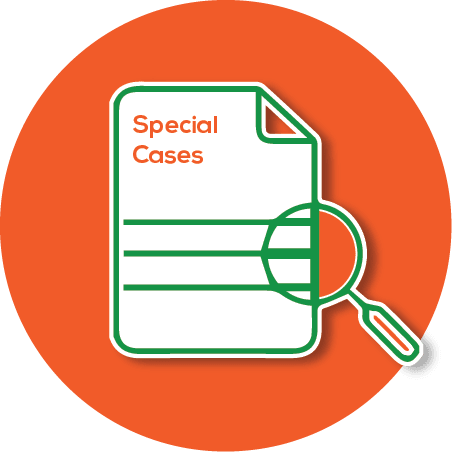
zypine (OLANZAPINE)
Introduction to Zypine
Zypine is a widely prescribed medication used in the management of certain mental health conditions. It is primarily utilized for its effectiveness in treating symptoms associate... See More

What is Zypine?
Zypine is an antipsychotic medication used to treat schizophrenia and bipolar disorder. It works by affecting certain chemicals in the brain to help manage symptoms like hallucinations, mood swings, and agitation. Zypine can be used alone or with other medications to improve mental health outcomes.

What is the usual dose of Zypine?
The usual starting dose of Zypine for adults is 5 to 10 mg once daily. Your doctor may adjust the dose based on your response and needs, with a maximum recommended dose of 20 mg per day. For elderly patients or those with liver issues, a lower starting dose may be used. Always follow your doctor's specific dosing instructions for your health needs.

How do I take Zypine?
Take Zypine as prescribed by your doctor, usually once daily. It can be taken with or without food, but try to take it at the same time each day. Do not crush or chew the tablets. If you miss a dose, take it as soon as you remember unless it's close to your next dose. In that case, skip the missed dose. Do not double up on doses. Avoid alcohol while taking Zypine, as it can increase side effects like drowsiness.

For how long do I take Zypine?
Zypine is usually taken long-term for chronic conditions like schizophrenia or bipolar disorder. The duration depends on your response and any side effects. Your doctor will guide you on how long to continue treatment. Never stop taking Zypine without consulting your doctor, as it may worsen your condition.

What disease or symptom is Zypine used for?
Zypine is primarily used to treat schizophrenia and bipolar disorder. It helps manage symptoms like hallucinations, mood swings, and agitation. Zypine can be used alone or with other therapies to improve mental health outcomes. It benefits these conditions by balancing chemicals in the brain that affect mood and behavior.

How long does it take for Zypine to start working?
Zypine may start to work within a few days, but it can take several weeks to achieve its full effect. The time it takes to work can vary based on individual factors like age and overall health. Always take Zypine as prescribed and discuss any concerns with your doctor.

Is Zypine effective?
Yes, Zypine is effective for treating schizophrenia and bipolar disorder. It helps manage symptoms like hallucinations, mood swings, and agitation. Clinical studies show that Zypine improves mental health outcomes in these conditions. Always follow your doctor's instructions to achieve the best results.

How do I know if Zypine is working?
You'll know Zypine is working if you notice improvements in symptoms like reduced hallucinations, mood stabilization, and better daily functioning. Regular check-ups with your doctor are important to monitor progress. They may use questionnaires or scales to assess your response to the medication and adjust treatment as needed.

How does Zypine work?
Zypine works by affecting neurotransmitters, which are chemicals in the brain that influence mood and behavior. It helps balance these chemicals, reducing symptoms like hallucinations and mood swings. Think of it as adjusting the volume on a radio to reduce noise and improve clarity. This makes Zypine effective for treating schizophrenia and bipolar disorder.

Who should avoid taking Zypine?
Do not use Zypine if you are allergic to it or its ingredients. It is not recommended for people with severe liver problems. Caution is needed for those with a history of seizures, diabetes, or heart issues. Always discuss your medical history with your doctor before starting Zypine to ensure it is safe for you.

Can I take Zypine with other prescription drugs?
Zypine can interact with other medications, increasing the risk of side effects. For example, it may interact with benzodiazepines, increasing drowsiness. It can also interact with medications that affect heart rhythm. Always inform your doctor about all medications you take to avoid interactions and ensure safe treatment.

Can Zypine be taken safely while pregnant?
Zypine is not recommended during pregnancy unless the benefits outweigh the risks. Limited data is available on its safety in pregnant women. If you are pregnant or planning to become pregnant, discuss with your doctor the safest treatment options for your condition.

Can Zypine be taken safely while breastfeeding?
Zypine is excreted into breast milk, so it is not recommended while breastfeeding. It may affect the breastfed infant, but specific adverse effects are not well-documented. If you are breastfeeding or planning to, talk to your doctor about safer medication options.

Is Zypine safe for the elderly?
Elderly individuals are more vulnerable to Zypine's side effects, such as drowsiness, dizziness, and weight gain. It may also increase the risk of falls. Doctors often prescribe lower doses for older adults and monitor them closely. Always discuss any concerns with your doctor to ensure safe use.

How should I store Zypine?
Store Zypine at room temperature, away from moisture and light. Keep it in a tightly closed container. Do not store it in the bathroom, as humidity can affect the medication. Keep it out of reach of children and pets. Check the expiration date regularly and dispose of expired medication properly.

Does Zypine make people tired or drowsy?
Yes, Zypine can cause drowsiness or fatigue, which are common side effects. These effects are usually mild to moderate. If you feel unusually tired, talk to your doctor. They can help determine if Zypine is the cause and suggest ways to manage these symptoms.

Does Zypine cause stomach upset?
Zypine can cause stomach upset, including nausea and constipation, but these effects are not common. If you experience mild nausea, taking the medication with food might help. Most people take Zypine without significant stomach issues. If you have severe or persistent stomach problems, talk to your doctor to determine if they are related to the medication.

Does Zypine affect sleep?
Zypine can cause sleep disturbances like insomnia or excessive sleepiness, but these are not common. If you notice changes in your sleep patterns, talk to your doctor. They can help determine if Zypine is the cause and suggest ways to improve your sleep while continuing treatment.

Does Zypine make it hard to think or concentrate?
Zypine can cause cognitive side effects like difficulty concentrating or thinking, but these are not common. If you notice these issues, they are usually mild. Talk to your doctor if concentration problems persist. They can help determine if Zypine is the cause and suggest solutions.

Does Zypine affect mood?
Yes, Zypine can affect mood. It is used to stabilize mood in conditions like bipolar disorder. However, it may also cause mood changes, anxiety, or agitation in some people. These effects are occasional and usually mild. If you notice mood changes, talk to your doctor for advice.

Does Zypine interfere with sexual function?
Yes, Zypine can interfere with sexual function. It may cause sexual health side effects like erectile dysfunction or loss of libido, which is a reduced interest in sexual activity. These side effects are considered occasional, affecting less than 10% of users. The severity can range from mild to moderate. If you experience these side effects, talk to your doctor. They may suggest adjusting your dose or trying a different medication to manage these issues while continuing your treatment.

Does Zypine affect appetite?
Yes, Zypine can increase appetite, which is a common side effect. This may lead to weight gain. If you notice changes in your appetite, try to maintain regular meal times and a balanced diet. If appetite changes are concerning, discuss them with your doctor for guidance.

Does Zypine cause weight gain?
Yes, Zypine can cause weight gain, which is a common side effect. This weight gain can be mild to moderate and may occur in more than 10% of users. To manage weight changes, maintain a balanced diet and regular exercise. If weight gain is significant, talk to your doctor for advice.

Does Zypine cause headaches?
Yes, Zypine can cause headaches, but this is not common. Most people do not experience headaches while taking this medication. If you do get mild headaches, staying hydrated and resting may help. Over-the-counter pain relievers can also be used after consulting your doctor. If headaches are severe or persistent, talk to your healthcare provider to determine if they are related to Zypine or another cause.

Does Zypine limit driving?
Zypine can cause drowsiness and dizziness, which may impair your ability to drive. Avoid driving until you know how the medication affects you. If you feel drowsy or dizzy, do not drive. Always prioritize safety and discuss any concerns with your doctor.

Is it safe to drink alcohol while taking Zypine?
It's best to avoid alcohol while taking Zypine. Alcohol can increase side effects like drowsiness and dizziness. It may also interfere with the medication's effectiveness. If you choose to drink, do so in moderation and be aware of any changes in how you feel. Discuss alcohol use with your doctor for personalized advice.

Is it safe to drink coffee or tea while taking Zypine?
You can drink coffee and tea while taking Zypine, as there are no known interactions. However, caffeine can increase anxiety or restlessness in some people. Enjoy caffeinated drinks in moderation and monitor how they affect you. If you notice any issues, talk to your doctor.

Is it safe to exercise while taking Zypine?
Yes, you can exercise while taking Zypine, but be cautious. The medication can cause drowsiness or dizziness, which might affect your balance. Start with light activities and gradually increase intensity. Stay hydrated and listen to your body. If you feel unwell during exercise, stop and rest. Consult your doctor if you have concerns.

What are Zypine possible harms and risks?
Potential risks and side effects include:
- Weight gain
- Diabetes or increased blood sugar
- Sedation or drowsiness
- Tardive dyskinesia (involuntary movements)
- Increased cholesterol levels
- Heart issues (such as QT prolongation)
Available in 10 variations

Zypine MD 2.5mg Tablet
Zypine MD 2.5mg Tablet
Olanzapine (2.5mg)
strip of 10 tablet md

Zypine MD 10mg Tablet
Zypine MD 10mg Tablet
Olanzapine (10mg)
strip of 10 tablet md

Zypine 2.5mg Tablet
Zypine 2.5mg Tablet
Olanzapine (2.5mg)
strip of 10 tablets

Zypine MD 5mg Tablet
Zypine MD 5mg Tablet
Olanzapine (5mg)
strip of 10 tablet md

Zypine MD 15mg Tablet
Zypine MD 15mg Tablet
Olanzapine (15mg)
strip of 10 tablet md

Zypine 20mg Tablet MD
Zypine 20mg Tablet MD
Olanzapine (20mg)
strip of 10 tablet md

Zypine 5mg Tablet
Zypine 5mg Tablet
Olanzapine (5mg)
strip of 10 tablets

Zypine 10mg Tablet
Zypine 10mg Tablet
Olanzapine (10mg)
strip of 10 tablets

Zypine MD 7.5mg Tablet
Zypine MD 7.5mg Tablet
Olanzapine (7.5mg)
strip of 10 tablet md

Zypine 7.5mg Tablet
Zypine 7.5mg Tablet
Olanzapine (7.5mg)
strip of 10 tablets








.svg)
